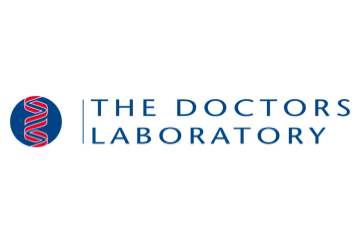PGT Treatment at a Private Fertility Clinic in London
WE'VE FEATURED IN





What is genetic testing of embryos (PGT)?
Preimplantation Genetic Testing (PGT) is a type of IVF treatment add-on in which the genetic material of the embryos is assessed for chromosomal and genetic problems prior to implantation.
By ruling out embryos with chromosomal abnormalities, you can increase your chances of having a healthy, successful pregnancy.

What is the difference between IVF treatment and PGT?
In traditional IVF embryologists assess the quality of embryos under a microscope five days after fertilisation to determine the embryo quality.
Preimplantation genetic testing (PGT) is a more advanced technique that helps embryologists identify if any of the embryos have chromosomal/genetic defects.
Chromosomal problems in embryos can lead to failed implantation, miscarriage and birth defects.

Meet Dr Irfana Koita – Expert in Preimplantation Genetic Testing (PGT)
At IVF Matters, Dr Irfana Koita provides personalized preimplantation genetic testing (PGT) in London, helping couples make informed decisions and improve their chances of a successful pregnancy. As a Fellow of the Royal College of Obstetricians and Gynaecologists trained at King’s College Hospital, with a Masters in Healthcare Leadership from Cornell University, she brings over 20 years of experience in fertility and assisted reproduction.
Dr Koita is nationally recognized for her expertise in advanced reproductive technologies, ensuring every patient receives evidence-based care and tailored guidance throughout their fertility journey.
Book a consultation today and start your path to parenthood with confidence and expert support.
A NEW WAY TO PAY FOR FERTILITY TESTS AND TREATMENTS
Buy Now Pay Later
Payments in instalments. Soft credit checks! Quick applications! Select at checkout.

Monthly payments over 12 months

Monthly credit card payments over 6 months

Monthly payments up to 7 years
Take the next step to grow your family
Preimplantation Genetic Testing for Aneuploidy (PGT-A)
PGT-A checks to see if your embryos have the correct number of chromosomes. Aneuploid embryos are those that have an incorrect number of chromosomes and are, therefore, unsuitable for IVF. Chromosome abnormalities happen frequently during the production of eggs, sperm and embryo development.
The first step of PGT-A is to undergo ovarian stimulation to retrieve eggs from the ovaries. These are then used to create embryos with the help of sperm. Five days later, embryos that reach the blastocyst stage are biopsied and cryopreserved (frozen). The genetic material is then sent for testing to a specialised laboratory.
It can take three to four weeks to get the results. A chromosomally normal embryo is then transferred into the womb in a subsequent cycle.
During traditional cycles of IVF, embryos are reviewed under a microscope but chromosome abnormalities can be missed.
PGT-A testing is a more accurate assessment of aneuploidy or chromosomal abnormalities. Because aneuploidy is a leading cause of failed implantation, miscarriage and birth defects, PGT-A testing may increase your chances of getting pregnant and staying pregnant.
PGT-A testing may:
- Increase pregnancy rates per transfer due to the selection of a normal embryo
- Reduce your likelihood of miscarriage
- Increase your chances of having a healthy baby, as some pregnancies with chromosomal anomalies can give rise to the birth of a baby with a serious illness
- Reduce the risk of multiple pregnancies by encouraging the transfer of a single embryo
- Help you achieve pregnancy with fewer IVF cycles
PGT-A testing is offered on a case-by-case basis. Our consultant will discuss all the benefits and risks before you decide whether or not to add this to your IVF treatment.
Couples or individuals who might be offered PGT-A testing include:
- Women who have had several miscarriages
- Couples who have had failed IVF cycles despite apparently normal embryos
- Women over 35, as aneuploidy rate increases with maternal age from approximately 50% at maternal age under 35, to approximately 80% at age 42
- Couples with a family history of chromosome problems
- Men whose sperm may carry abnormal chromosomes
Both PGT-A and PGT-M are considered safe and accurate. However, accuracy is approximately 98% so prenatal testing is still recommended.
Risks associated with embryo testing include:
- Although highly accurate, there is a small chance of misdiagnosis
- If all the embryos are found to have abnormal chromosomes, there won't be any embryos to put back in the womb
- There is a less than 1% chance that the process of removing a cell or cells from the embryo might damage the embryo so that it cannot be used
Please refer to our Treatment Prices section for further information.
Preimplantation Genetic Testing for Monogenic Disorders (PGT-M)
PGT-M is a type of embryo testing carried out during an IVF cycle to check the genetic material of your embryos for specific inherited conditions. Couples with a familial history of serious genetic conditions who want to avoid passing them on to their children might choose this additional testing.
The first step is ovarian stimulation to retrieve eggs from the ovaries which are then fertilised with sperm to create embryos. The embryo biopsy is performed at the blastocyst stage and the embryos are cryopreserved. The genetic material is then sent for testing to a specialised laboratory.
PGT-M is a tailored test that assesses all your embryos. It can take three to four weeks to get the results. An embryo that is free of the condition is then transferred into the womb in a subsequent cycle.
PGT-M helps significantly decrease your chance of having a child with an inherited disorder by identifying and excluding embryos that carry the altered gene.
Only one of those embryos that do not have the mutation would be selected for implantation.
If you or your partner is a known carrier of a genetic condition or if you are worried about your family’s history of a serious genetic condition, you might consider PGT-M.
PGT-M assesses if your embryos carry abnormalities of a single gene or single chromosome. Some single-gene conditions include cystic fibrosis, fragile-X syndrome, muscular dystrophy, Huntington's Disease and sickle cell anaemia, amongst others.
PGT-M can only be used for approved conditions, but there are currently more than 300 conditions for which it is approved. You can find the full list of approved conditions on the HFEA website.
IVF Matters provides all-inclusive, transparent treatment packages with no hidden costs. Flexible payment plans, including instalments and “buy now, pay later” options, are available to make treatment more accessible. Please see our pricing page for full details.

Get in touch with us today
We understand that making decisions about your embryos and your fertility can be challenging. We’re here to give you all the advice, support and treatment you need to increase your chances of having a healthy baby.
If you would like to learn more about either PGT-A or PGT-M, our fertility consultants would be happy to help you understand if one of these IVF treatments might be right for you.
Contact Us
Our Location
Working With








